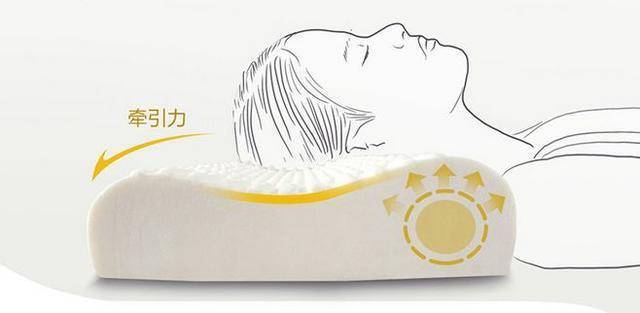Selecting the right pillow height is not just a matter of comfort; it’s essential for maintaining proper spinal alignment and ensuring a restful sleep. Pillows that are either too high or too low can lead to various issues, affecting not only your sleep quality but also your overall health. In this article, we’ll delve into the effects of incorrect pillow height and provide guidance on how to choose the right pillow for a better night’s sleep.


The Importance of Pillow Height in Sleep Ergonomics
Why Pillow Height Matters
Pillow height plays a crucial role in maintaining the natural alignment of your spine. A pillow that aligns your head and neck with your spine helps in preventing pain and discomfort, ensuring a restful sleep.
Understanding Spinal Alignment and Sleep Posture
Proper spinal alignment during sleep is vital for reducing strain on your muscles and joints. An ideal sleep posture keeps your body in a natural, neutral position, reducing the risk of pain and stiffness.
Effects of Pillows That Are Too High
1. Neck and Shoulder Pain
a. Strain on Neck Muscles
A pillow that is too high can cause your neck to bend unnaturally, straining the muscles and potentially leading to neck and shoulder pain.
b. Impact on Shoulder Alignment
The elevated position can also misalign your shoulders, contributing to discomfort and stiffness.
2. Aggravation of Snoring and Sleep Apnea
a. Restricted Airway
An excessively high pillow can restrict your airway, potentially worsening snoring and sleep apnea symptoms.
3. Potential for Headaches and Tension
a. Pressure on Nerves
The unnatural angle can put pressure on nerves, potentially leading to tension headaches.
Effects of Pillows That Are Too Low
1. Insufficient Neck Support
a. Loss of Spinal Alignment
A pillow that’s too low fails to support the natural curve of your neck, leading to misalignment and strain.
2. Increased Risk of Neck and Back Pain
a. Muscle Strain
Without adequate support, the muscles in your neck and back may strain to compensate, leading to pain and stiffness.
3. Potential for Poor Sleep Quality
a. Discomfort and Frequent Awakenings
Inadequate support can lead to discomfort and frequent awakenings, disrupting your sleep cycle.
Choosing the Right Pillow: Tips and Considerations
1. Consider Your Sleeping Position
a. Side Sleepers
Side sleepers typically need a higher pillow to fill the gap between their neck and the mattress.
b. Back Sleepers
Back sleepers generally require a medium-height pillow to support the natural curve of their neck.
c. Stomach Sleepers
Stomach sleepers often benefit from a low pillow or no pillow at all to avoid straining their neck.
2. Factor in Your Body Size and Mattress Firmness
a. Body Size
Your body size can influence the ideal pillow height. Larger individuals may need a higher pillow, while smaller individuals might need a lower one.


b. Mattress Firmness
The firmness of your mattress also affects pillow height. A softer mattress requires a lower pillow, as your body sinks more into the mattress.
Summary
In conclusion, choosing a pillow of the right height is crucial for maintaining spinal alignment, reducing the risk of pain, and ensuring a comfortable and restful sleep. By considering factors like your sleeping position, body size, and mattress firmness, you can select a pillow that provides optimal support and comfort.
FAQs
- How do I know if my pillow is too high or too low? If you wake up with neck or shoulder pain, or if your neck is angled upward or downward when lying down, your pillow might be the wrong height.
- What pillow height is best for side sleepers? Side sleepers generally need a higher pillow to maintain neck alignment with the spine.
- Can a wrong pillow height affect sleep quality? Yes, an incorrect pillow height can lead to discomfort, pain, and frequent awakenings, affecting your sleep quality.
- Is it better to sleep without a pillow if I can’t find the right height? Sleeping without a pillow is not advisable for most people, as it can lead to neck strain. It’s better to find a pillow that suits your individual needs.
- Can the wrong pillow height worsen snoring or sleep apnea? Yes, a pillow that’s too high can restrict your airway, potentially worsening snoring and sleep apnea symptoms.



